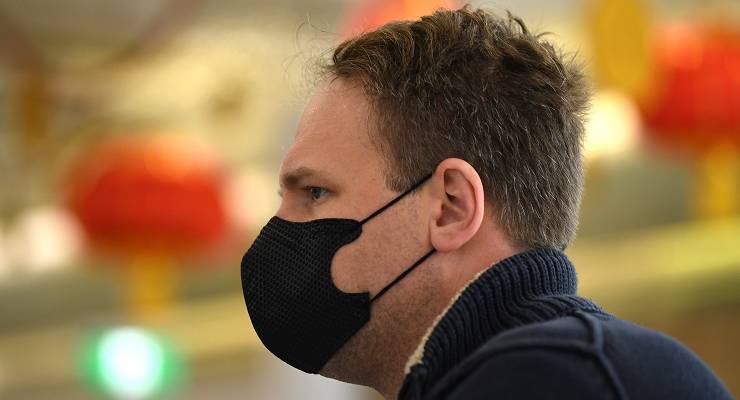
The COVID-19 pandemic has put every aspect of society under a harsh spotlight. Some institutions have responded well, acting quickly to reduce the risks faced by the community.
Hospitals, doctors and nurses around the world have worked bravely and tirelessly, at great personal risk, to fight the disease.
The university sector, often (and often correctly) viewed as hidebound and sclerotic, moved rapidly to stop classes, shift to online teaching and (slightly more belatedly) direct all academic and administrative staff to work from home.
But other institutions, meant to protect us from the risk of disaster, or help us manage the consequences, have failed to do so. In some cases, they’ve been worse than useless.
Border Force
This quasi-military body was supposed to secure our borders against all kinds of external threats. That includes “all operational activity relating to the management of goods, people and cargo throughout the border continuum”
Yet when we were faced with a real threat, it was suddenly discovered that protecting our borders is actually the job of state health departments.
Financial markets
A central claim underlying neoliberalism is that financial markets can do a better job of managing risk than governments can. At the high point of enthusiasm for neoliberalism, just before the global financial crisis (GFC), it was suggested that newly created “prediction markets” would provide advance warning of pandemics.
In reality, financial markets woke up to the severity of the coronavirus crisis around the same time as the general public (the ASX reached an all-time peak on February 20). Those with inside access to assessment by government analysts, pointing to the likely severity of the crisis, sold early and cashed in huge profits, as in the case of US Senator Richard Burr.
Having failed to provide warnings that might have helped businesses prepare for the pandemic, the financial sector has been part of the problem in responding. The huge volumes of debt taken on since the GFC have raised the risk of another crisis in the financial sector.
Meanwhile, despite the dizzying array of complex financial products the sector offers, none have any significant value in responding to this disaster. Taking the most obvious risk, that of death from the virus: lots of life insurance policies (including mine!) have an exclusion for pandemics — although they are currently being shamed into removing (or, in PR terms, “clarifying“) this fine print.
Organised religion
Religious institutions have traditionally been looked to to provide moral leadership and spiritual hope in times like these. Undoubtedly, religious faith remains a source of comfort for devout believers, including, notably, Prime Minister Scott Morrison.
But a striking effect of the pandemic has been the disappearance of religious leaders from the public conversation.
For most of 2019, and even into early 2020, they were vociferous in demanding protection for their right to dismiss employees who disagreed with their views on marriage. But as the pandemic has emerged, organised religious groups have been notable only to the extent that religious meetings have helped to spread the virus. If there has been any message of hope for the broader public it has passed without much notice.
The same is true of relief efforts. Religion-based charities have continued to do good work, here and overseas. But the relief efforts that have sprung up around the country, such as the “Care Army” in Queensland, have been almost entirely secular, appealing to sentiments of community solidarity rather than religious or spiritual obligation.
So what now?
With the crisis yet to peak, there is no time to waste on recriminations. Once it is all over, the institutions that have failed us will be increasingly irrelevant.
Border Force will be seen not as our first line of defence against foreign threats, but as a jumped-up bureaucracy in silly uniforms.
Financial markets, thought of as the masters of the universe and repositories of all economic wisdom in the 1990s, will be seen as a problematic but necessary service to be managed as carefully as possible.
Religion will be seen not as the foundation of our society, but as a minority belief, entitled to protection but not deference.
On the positive side, the collective effort to beat the pandemic should see, as in the aftermath of World War II, a renewed appreciation of social solidarity, and a break with the egoistic rationalism that has eroded our social fabric over recent decades.








My bet is on the total opposite of the sentiments expressed in J.Q,s last paragraph.
My money is on a much more dog eat dog society , a far greater rejection of “Globalism”. The “haves and Powerful” protecting themselves with more and more controls and restrictions on the masses.
Don’t forget we still have Terrorism, Climate Change and the risk of further Pandemics to justify this.
Also it’s hard to start a protest or revolution in groups of two.
Bravo Quiggin and Crikey !
Border Farce has been sheltered too long by Dutton who took it with hm to his present portfolio.
Border Farce was always a dumb idea and it did not get any better when it was repurposed after the first fiasco.
Dutton, an ex-cop, wanted the role, the arms and the responsibilty embodied in Border Farce and this is the outcome.
“This quasi-military body was supposed to secure our borders against all kinds of external threats. That includes “all operational activity relating to the management of goods, people and cargo throughout the border continuum””
What a ridiculous over-reach that Border Farce role statement was !
How impossibly confusing in a country which has never been able to keep up with the moving line of Federalism stealing functions from State Governments to progressively move them to the Commonwealth.
Result? Do we yet have a single view of who was responsible for the decision to allow 2700 people from the high seas to land in the middle of Sydney? Was that Peter Dutton? If not, what is he responsible for, again? Running for PM?
The sheer incompetence allowing the only boat that was a clear, definite threat to Australia to motor up Sydney Harbour, dock at Circular quay and disgorge its viral payload across the nation is staggering enough. But to then see Slomo in a video conference from the prime ministers office comparing, I can only assume himself, to Moses who ‘looked down at the sea, held up his staff and on they went’, beggars belief.
https://www.youtube.com/watch?v=-DuPof6bqmM
Climb down from your pulpit Slowmo. You’re not Moses, and the only thing you’re parting is the Australian people from a democratic government by disbanding parliament.
Besides if there was a God he would’ve tazered the lot of you years ago.
A pity this wasn’t included in the Weekender.
What the aftermath will look like, and what lessons will have been learned, is totally unclear.
A spending orgy, capitalism triumphant, climate catastrophe worse than before?
Or swathes of people thinking “I’ve discovered I really don’t need all that rubbish I used to consume”, and a permanent preference for a more egalitarian society?
It likely depends on how bad it gets and how long it lasts.
“The outcome of all of this will map on to my worldview”. Another tedious example of this genre of commentary.